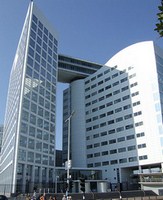
Late last month, video surfaced of a man in South Africa being dragged behind a police van, sparking an outcry about the state of the country’s police force. In an email interview, Andrew Faull, a doctoral candidate at the University of Oxford’s Centre for Criminology who has written extensively on public policing in South Africa, explained how South Africans view the country’s police, and the police force’s evolution since the apartheid era. WPR: How are South Africa’s police regarded in terms of their efficacy and accountability? Andrew Faull: Data on perceptions of police in South Africa appear at times contradictory […]



